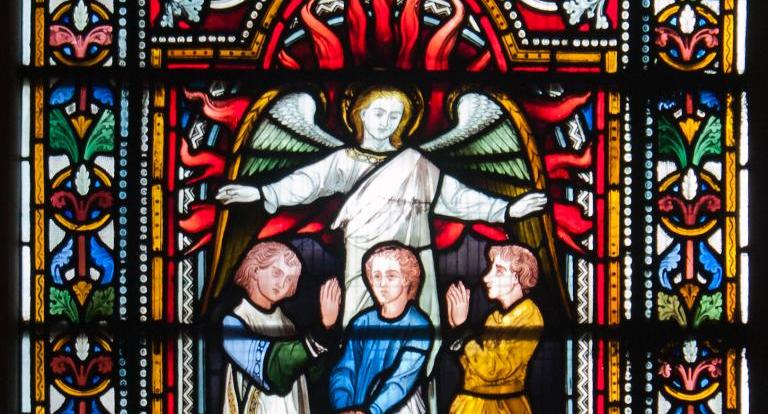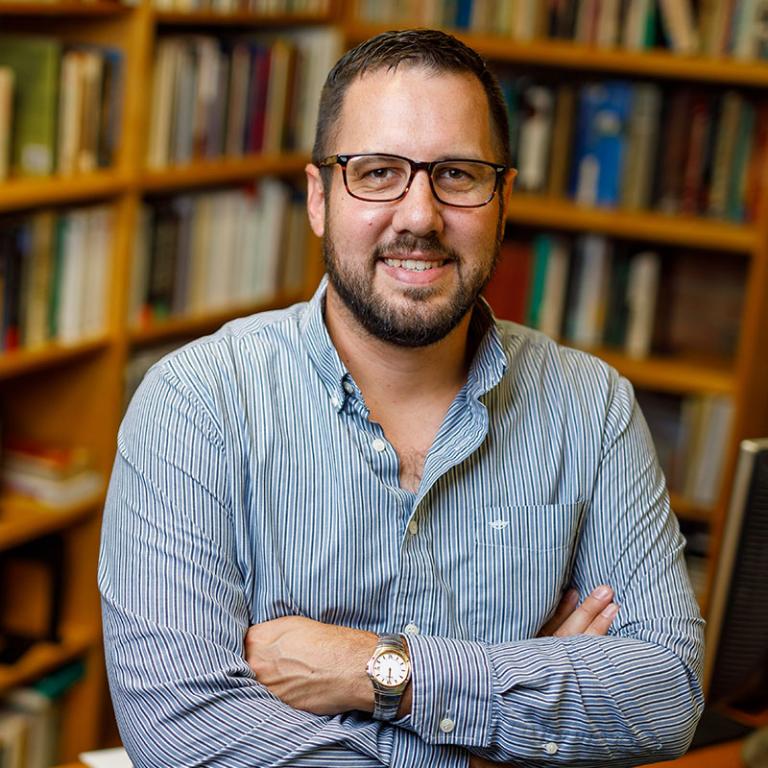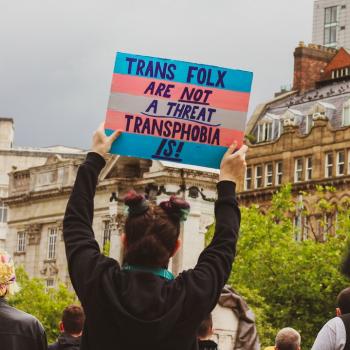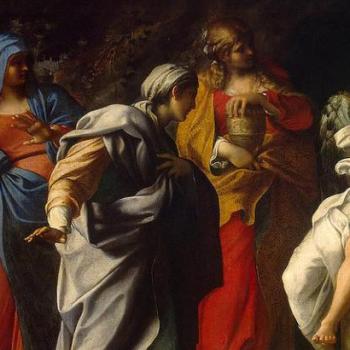The parable of the talents, or of the three servants, is one of Jesus’s most familiar parables. Yet, despite its familiarity, it is one of the most commonly misread parables of Jesus.
There are a number of ways to misread this parable. Some take Jesus’s description of the master in the parable to be a straightforward depiction of God. According to this view, God is a harsh master, just like the third servant describes. The Christian life, then, is about trying to meet this harsh master’s expectations—or at least about trying not to anger God.
But there are many passages throughout Scripture that describe God as gracious, compassionate, slow to anger, and abounding in love. Since we know these things to be true of God, we can dispense with this one-to-one correlation between the master and God.
Jesus uses parables to shock the imaginations of his listeners. And oftentimes this shock comes through the use of outlandish or grotesque characters or imagery to make a particular point.
Others read this parable as suggesting that God favors those who are more talented or gifted. The English word talent is derived from the Greek word in this parable, translated here as “bag of silver.” In English, the word talent has come to mean a special skill, aptitude, or gifting, based on interpretations of this parable. This is all well and good so long as we recall that the master doesn’t favor the one with the most talents.
The talents are gifts freely given by the master, not earned by the servants. At the end of the parable, the master celebrates the use of those talents, whether many or few. There is thus no basis for favoritism in the church based on this parable, though sadly churches too often favor those who are especially talented—or even those who are well off financially.
Which leads to another misreading of this parable: some read it quite literally as talking about how to invest one’s finances. On this reading, the parable offers straightforward investment principles that would fit nicely into a Dave Ramsey–style seminar. Those who multiply their money through savvy investments are praised, whereas those who struggle financially are kicked while they’re down.
But the context of this parable, situated between the parable of the 10 bridesmaids and the parable of the sheep and the goats, makes clear that Jesus is not interested in teaching about money here. Just as a parable of the bridesmaids isn’t about wedding manners and the parable of the sheep and the goats isn’t about shepherding practices, neither is the parable of the talents about money. Instead, these parables are about how to live in the time between the times, in the time where God’s kingdom is already established but not yet fully realized.
And so we are led to the question: What does it mean to be a faithful citizen in this time between the times?
We’ve seen how some read Jesus’s saying about “giving to Caesar what’s Caesar’s” or Paul’s teaching in Romans 13 to imply that Christians are called to submissively obey their governments, regardless of what the government commands of them. But we’ve seen how that can’t possibly be true since Jesus teaches his followers to give undivided allegiance to God. And he further teaches that the command to love one’s neighbor supersedes any other law or command.
Others have proposed that faithful citizenship means taking the reigns of power and making one’s country into a “Christian nation.” But that can’t be true either since Jesus explicitly teaches that his followers are not to be like worldly rulers who claim to be benefactors. Instead, Jesus says, the greatest of his followers is the one who serves one’s neighbors. (See Luke 22:24–27.)
Finally, others believe that faithful citizenship to God’s kingdom means having nothing to do with worldly kingdoms altogether. On this view, worldly empires, whether Roman or American, are inherently violent and evil, and the Christian is thus called out of them and into the church, which is where God’s kingdom is found. While I have more sympathy for this last view, it can’t be true either since it fails to acknowledge that we are already, inextricably enmeshed in earthly societies. Unless we are to join isolated communes that live off the land and produce all their own goods and services, it does us no good to pretend that we are completely distinct from the kingdoms of this world.
Instead of denying the various forms of power and privilege that we have and trying to bury those things in the sand, we would do best to use that power and privilege to love our neighbors as we live in this time between the times.
The Hebrew people in our Old Testament provide witness to faithful citizenship in the time between times. As they are led into exile in Babylon, the Lord promises them through the prophet Jeremiah that their time in Babylon will not last forever: “I will come and do for you all the good things I have promised, and I will bring you home again. For I know the plans I have for you,” says the Lord. “They are plans for good and not for disaster, to give you a future and a hope” (Jeremiah 29:10–11).
But in the time between the times, they aren’t called to separate from their society. Instead, the Lord instructs the people, “Work for the peace and prosperity of the city where I sent you into exile. Pray to the Lord for it, for its welfare will determine your welfare” (Jeremiah 29:7). In this time between the times, the people are called to seek the welfare, the peace, the shalom of the society into which they are exiled.
This isn’t the only time God’s people find themselves in such times between the times. Throughout the Old Testament, they repeatedly find themselves occupied by empires. And it’s instructive to see the various ways they respond, the various ways they seek shalom, the various ways they express faithful citizenship.

Throughout the centuries during which the Bible was written, numerous empires rise and fall, and God’s people find themselves relating to each one. In particular, the Bible describes the Egyptian, Assyrian, Babylonian, Persian, and Roman empires. Each of these empires are violent and oppressive toward the Hebrew people; and yet, in various circumstances, God’s people interact with them differently.
The first interactions go all the way back to the first book of the Bible, Genesis. We all know the story of God raising up Moses to deliver the Hebrews from Egypt in the second book of the Bible, appropriately titled Exodus. But sometimes we forget that hundreds of years prior, God raises up Joseph to lead Egypt through a period of famine—and in so doing to save not only the Egyptians but also his own people from starvation.
When Joseph is finally reunited with his brothers, who had sold him into slavery in Egypt, he tells them, “Don’t be afraid of me. Am I God, that I can punish you? You intended to harm me, but God intended it all for good. God brought me to this position so I could save the lives of many people. No, don’t be afraid. I will continue to take care of you and your children” (Genesis 50:19–21).
Joseph sees his rise from slavery and imprisonment to overseer of Egypt’s massive welfare program as part of God’s plan to “save the lives of many people.” He realizes that, in that moment, Egypt’s welfare determines the welfare of his own people.
Many centuries later, the Israelites are conquered by the Assyrian Empire. Although Assyria is a notoriously cruel and violent empire, God calls the Israelite prophet Jonah to go to its capital of Nineveh to preach a message of repentance. Jonah, of course, is resistant to this commission, telling God: “I knew that you are a merciful and compassionate God, slow to get angry and filled with unfailing love. You are eager to turn back from destroying people. Just kill me now, Lord! I’d rather be dead than alive if what I predicted will not happen” (Jonah 4:2–3).
God responds to Jonah, “Nineveh has more than 120,000 people who don’t know their right hand from their left, not to mention all the animals. Shouldn’t I feel sorry for such a great city?” (Jonah 4:11).
God raises up this reluctant prophet for the welfare of Israel’s occupiers out of God’s love and compassion for all people—and for all of God’s creation, including the animals!
When the Babylonian Empire rises to power and takes the people of Judah into exile, the king selects those “well versed in every branch of learning, are gifted with knowledge and good judgment,” to serve in his court (Daniel 1:4). This includes four Hebrews, Daniel, Hananiah, Mishael, and Azariah, who are given the Babylonian names Belteshazzar, Shadrach, Meshach, and Abednego.
While these four remain in the royal service, they make clear their moral and spiritual independence from the outset. They insist on maintaining a strict vegetarian diet instead of eating the food given to them by the king. They refuse to bow before the king’s golden statue, even at the threat of being thrown into a fiery furnace. And later Daniel refuses to cease praying to God, even at the threat of being thrown into a den of lions.
What is sometimes forgotten is how these Hebrews find themselves in such high positions in the first place. When the king has a dream that his astrologers are unable to interpret, he becomes angry and orders that all the wise men be killed, including Daniel and his friends. Daniel requests more time from the king and then urges his friends “to ask the God of heaven to show them mercy by telling them the secret, so they would not be executed along with the other wise men of Babylon” (Daniel 2:18).
When God reveals the meaning of the dream to Daniel, and Daniel reveals it to the king, the king “appoints Daniel to a high position.” And, “at Daniel’s request, the king appoints Shadrach, Meshach, and Abednego to be in charge of all the affairs of the province of Babylon, while Daniel remains in the king’s court” (Daniel 2:48–49). By seeking the shalom of the empire, Daniel and his friends’ lives are spared.
Finally, when the Persian empire conquers Babylon and rises to power, the Hebrews find themselves subjected to yet another empire. The sexist and misogynist King Xerxes deposes his wife, the queen, for refusing to dance before his court. The king then sends letters throughout his empire “proclaiming that every man should be the ruler of his own home and should say whatever he pleases” (Esther 1:22).
In the midst of this deeply misogynist society, a Jewish orphan Hadassah, also known as Esther, is selected by the king to replace the queen, on account of Esther’s physical beauty. Esther’s older cousin and caretaker Mordecai instructs Esther to keep her national identity a secret.
But when the king’s right hand man, Haman, requires citizens to bow before him, Mordecai refuses. When Haman learns that Mordecai is a Jew, he tells the king:
There is a certain race of people scattered through all the provinces of your empire who keep themselves separate from everyone else. Their laws are different from those of any other people, and they refuse to obey the laws of the king. So it is not in the king’s interest to let them live. If it please the king, issue a decree that they be destroyed, and I will give 10,000 large sacks of silver to the government administrators to be deposited in the royal treasury. (Esther 3:8–9)
With the promise of this bribe, the king agrees to Haman’s plot.
When Mordecai hears of the decree, he sends a message to his cousin Esther, the queen: “Don’t think for a moment that because you’re in the palace you will escape when all other Jews are killed. If you keep quiet at a time like this, deliverance and relief for the Jews will arise from some other place, but you and your relatives will die. Who knows if perhaps you were made queen for just such a time as this?” (4:13–14)
Esther replies to Mordecai, “Go and gather together all the Jews of Susa and fast for me. Do not eat or drink for three days, night or day. My maids and I will do the same. And then, though it is against the law, I will go in to see the king. If I must die, I must die” (4:16).
Esther throws a banquet for the king, and when he asks her what she requests of him, she shares her identity and pleads for her people: “If I have found favor with the king, and if it pleases the king to grant my request, I ask that my life and the lives of my people will be spared. For my people and I have been sold to those who would kill, slaughter, and annihilate us” (7:3–4).
So the king reverses Haman’s order to kill the Jews and turns Haman’s plot on its head.
When the Jewish people throughout the empire learn of this reversal, they “are filled with joy and gladness and are honored everywhere” (8:16). To this day, this deliverance of the Jews is celebrated annually as the Festival of Purim.
And the book of Esther concludes with these words: “Mordecai the Jew became the prime minister, with authority next to that of King Xerxes himself. He was very great among the Jews, who held him in high esteem, because he continued to work for the good of his people and to speak up for the welfare of all their descendants” (10:3).
Notice three observations from these stories:
First, none of these people actively seek their positions of power; they simply seek to use their talents for the welfare, or shalom, of the society in which they live. Indeed, when one of them, Jonah, tries to bury his talent instead of using it for the welfare of his enemies, he is directly rebuked by God.
Second, none of them compromise their moral conscience or allegiance to God in order to maintain power or stay in the good graces of their political leaders. They each maintain undivided allegiance to God and, in so doing, are willing to openly break laws that would require them to compromise, even when doing so puts them in harm’s way.
At the same time, third, when they do find themselves in positions of power, they don’t pretend that they have no power and privilege. Instead, they used their positions of power and privilege for the sake of others—to seek the welfare of their society. They recognize, with Jeremiah, that the welfare of their own people is tied to the welfare of society as a whole.
In our own time and place, our circumstances differ significantly from the Hebrew people in the Old Testament. Instead of living under a monarchy, we live in something approximating a representative democracy. Most of us are not occupied people but are citizens of our country. But, as with these Old Testament examples, we too can recognize the power and privileges we have within society.
While we don’t compromise our allegiance to God, or go against our moral conscience, or seek power for our own sake, we can use our power and privilege—our talents—to seek the shalom of our society.
We do so not out of fear of a harsh God but out of love for a God who proclaims over us: “Well done, my good and faithful servant. You have been faithful in handling this small amount, so now I will give you many more responsibilities. Let’s celebrate together!” (Matthew 25:21, 23)












